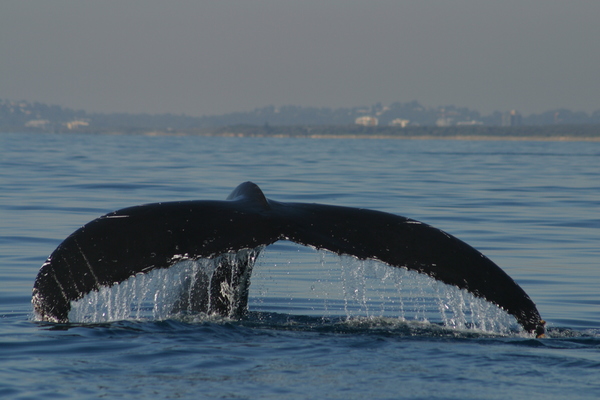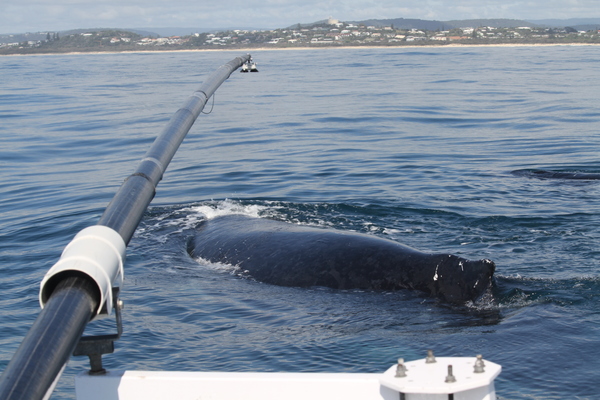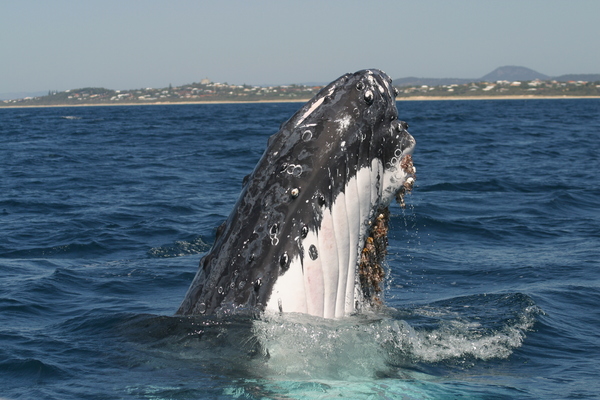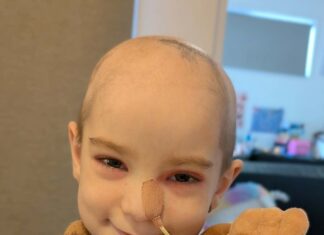By Margaret Maccoll
As National Whale Day approaches on 4 June, University of Queensland humpback whale researchers are looking forward to this year tapping into the chat between mums and their calves as they migrate past Peregian Beach.
This is the 20th year whale researchers have based themselves at Peregian Beach and Dr Rebecca Dunlop said this year’s challenge was to place acoustic tags on both mother and calf in order to record the calls between them.
“We’ve successfully tagged a lot of whales before, but only one in a group. They get a bit wary after that,” she said.
Professor Michael Noad said the suction cap tags were “tapped” onto a whale using a 6m carbon fibre pole. The tags fall off after a few hours and have to be retrieved to read the data.
Rebecca said previous studies had found mothers and calves used a low vocal tone identifiably different from the serenading of the males, who sing mating songs found to have passed down from generations or groups.
Rebecca said the lower vocal tones were used by females to calves and between those not wanting to attract male attention.“The calf goes off and mum has to call it back. We’ll be investigating those sorts of calls,” she said.
It was Michael who first realised the advantage of Peregian Beach as a humpback whale research area when he was staying rent-free at his parents’ beach house while finishing his PhD 20 years ago.
With Emu Mountain a good vantage point and the whales passing close to the beach, particularly on their southbound migration, Peregian Beach has been their base ever since.
In that time they have studied various aspects of behaviour and communication and plan to next research how whales behave in relation to ships and boats.











